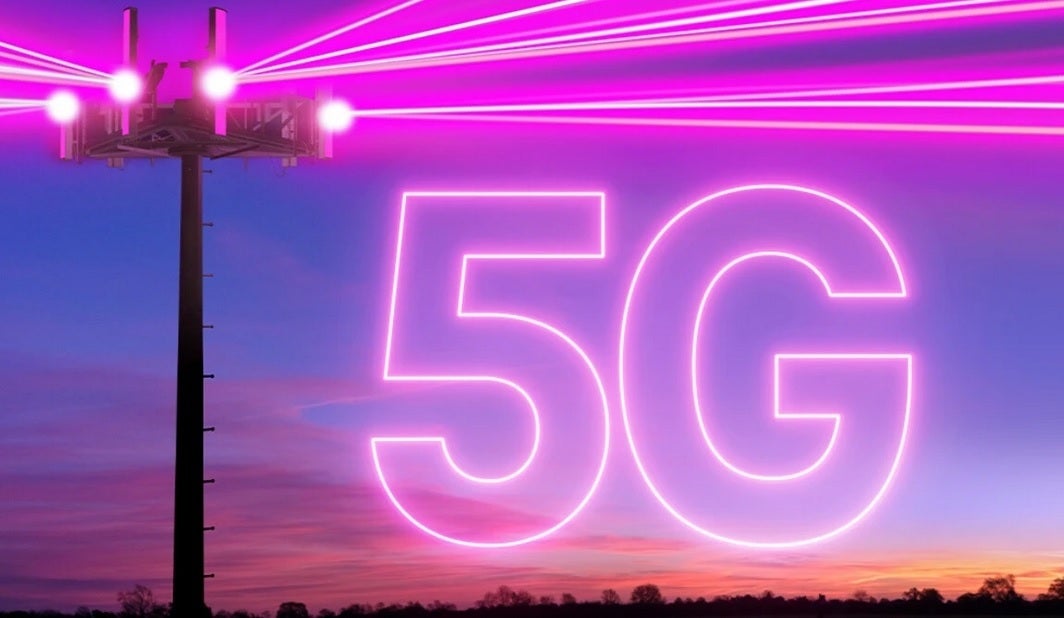T-Mobile executive explains why it dominates top 100 U.S. markets

According to Fierce Wireless, during today's MoffettNathanson investor conference, T-Mobile Executive VP and CFO Peter Osvaldik said, "In the top 100 markets we are typically in the 40% market share." The executive says this is because 60% of its postpaid customers own 5G-enabled handsets, a higher percentage than its rivals. As a result, T-Mobile subscribers are more apt to experience how much better its 5G service is compared to AT&T and Verizon.
And T-Mobile says that it is now seeing growth in 775 smaller markets and rural coverage areas where it has about 16.5% of the market. In 2021, when that figure was 13%, the carrier said that it had a goal to reach 20% of this market by 2025. To help get to that target, T-Mobile is relying on "customer-driven coverage" which is a fancy phrase for asking customers where T-Mobile needs to add connectivity. Once connectivity has been added in an area, the company builds up distribution through retail stores or partnerships.
T-Mobile could end up selling 13.5MHz of 800MHz spectrum to Dish for over $3.5 billion
Last month T-Mobile introduced its new Phone Freedom "Un-carrier" move which allows new and existing customers to benefit from new equipment deals and allow subscribers to upgrade to a new phone every two years instead of every three years like the competition is doing. Two new wireless plans, Go5G and Go5G Plus were announced

T-Mobile says that its great market share in the top 100 U.S. markets is due to its better 5G service
During the investor conference, Osvaldik said that T-Mobile isn't sure whether Dish Network will pull the trigger on its option to buy 13.5MHz of low band 800MHz spectrum from the carrier for $3.59 billion. Last month, Dish received a 60-day extension on the option which led Osvaldik to say, "Our potential 800 MHz spectrum transaction sits in Charlie’s court." And by 'Charlie,' the T-Mobile executive is referring to Dish Chairman Charles Ergen.
If Dish decides to run away with the spoon and not purchase the spectrum, T-Mobile will get paid a $72 million break-up fee. So either way, whether the deal gets done or not, the nation's second-largest wireless provider might be in line to receive a free toaster from their bank. While Ergen said during his company's Q1 earnings conference call that Dish doesn't have access to the debt market, it is asset rich indicating that it could sell off some assets or use them as collateral for a loan.
Dish files to block T-Mobile from acquiring more low-band spectrum
Dish continues to lose subscribers to its Boost Mobile prepaid business, but more importantly, for the long term, it continues to build a 5G network for its postpaid wireless business. The latter is where the big bucks come in. But Dish might have a more pressing reason to exercise the option. As per its deal with the FCC that allowed it to replace Sprint as the nation's fourth largest wireless provider, by June 14th-less than a month away-Dish must cover 70% of the U.S. with 5G signals. If Dish fails to accomplish this, it could be on the hook for up to $2 billion in penalties.
Dish has filed a petition with the FCC seeking to block a purchase of low-band 600MHz spectrum by T-Mobile from Columbia Capital. Dish claims that the deal would give T-Mobile too much 600MHz spectrum. T-Mobile spent $7.9 billion in 2017 to win 31MHz of 600MHz airwaves in a big-time FCC auction (Dish spent the next largest amount, $6.21 billion) and has employed it for its nationwide 5G service.
But we digress. T-Mobile continues to grow and for the first quarter, it added 538,000 net new postpaid phone subscribers which were more than AT&T (424,000 net additions) and Verizon (a net decline of 127,000) combined. Investors didn't seem to get stirred up by today's investor conference as T-Mobile's shares declined $2.12 or 1.48% on Wednesday to close at $141.58. The shares are currently closer to the 52-week high of $154.38 than the $121.76 52-week low.
Follow us on Google News












Things that are NOT allowed:
To help keep our community safe and free from spam, we apply temporary limits to newly created accounts: